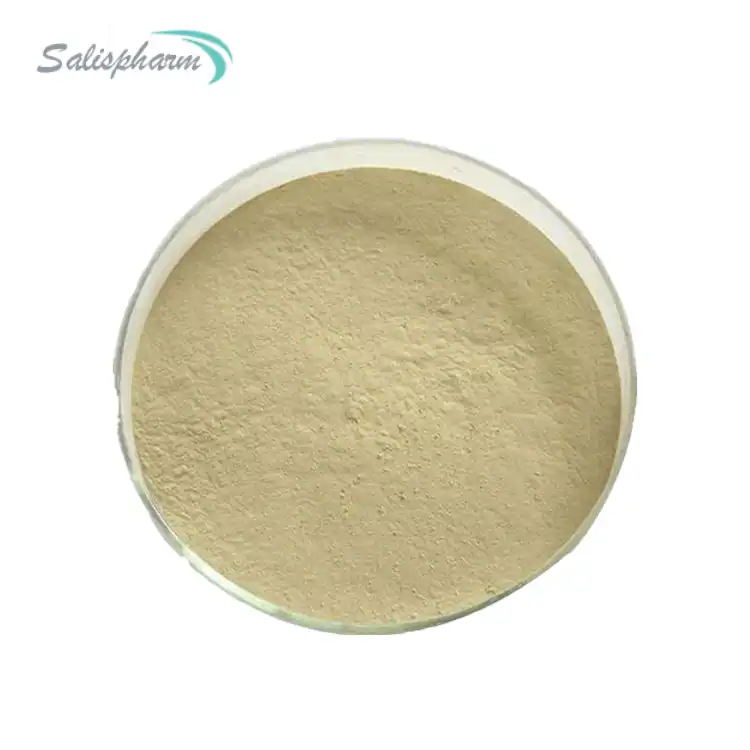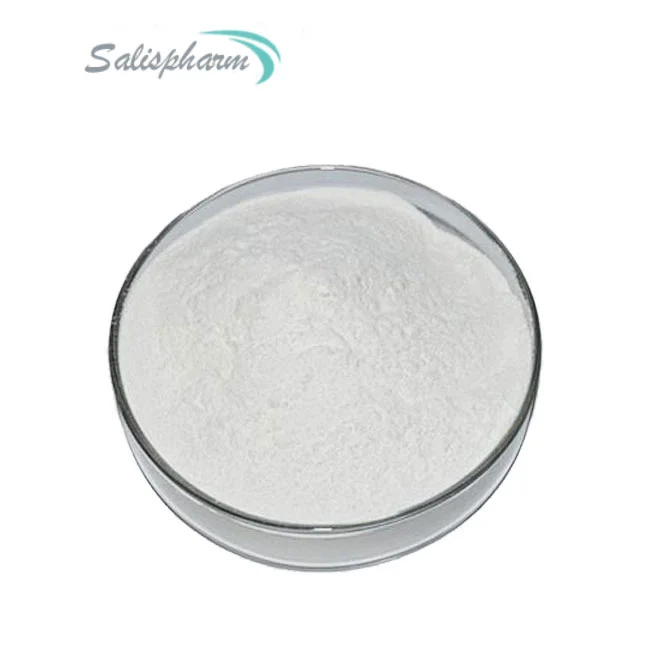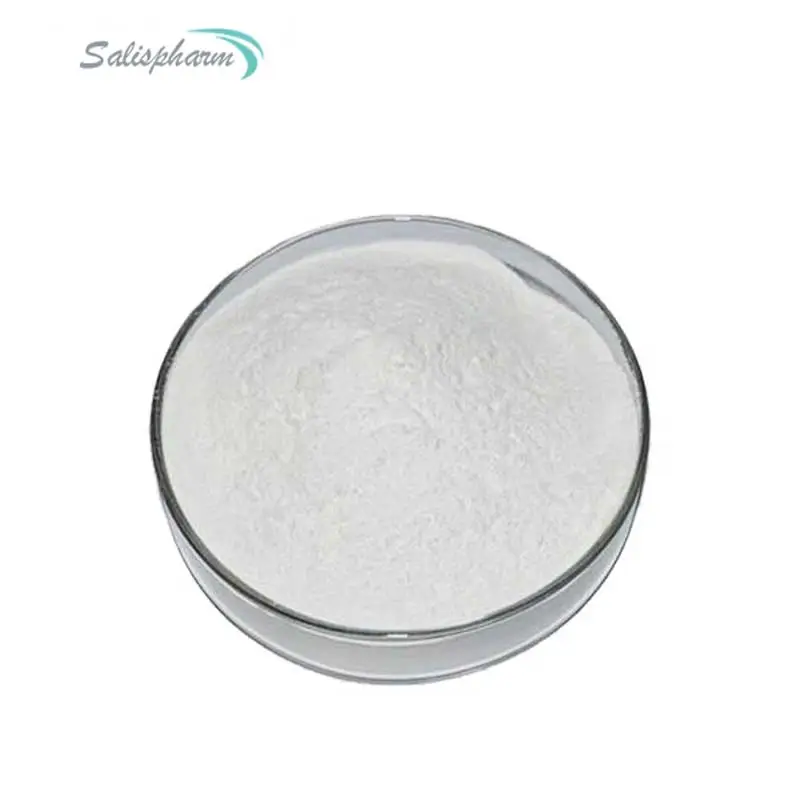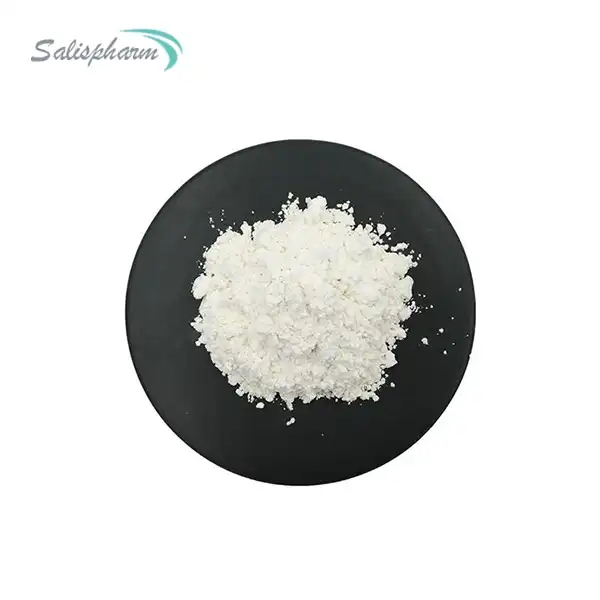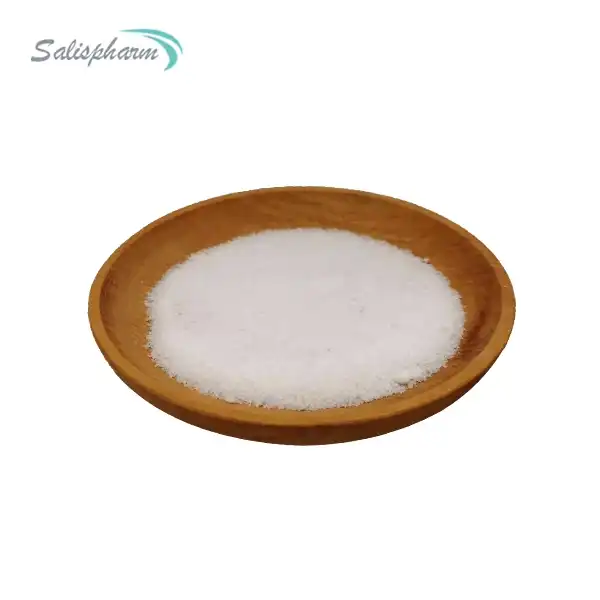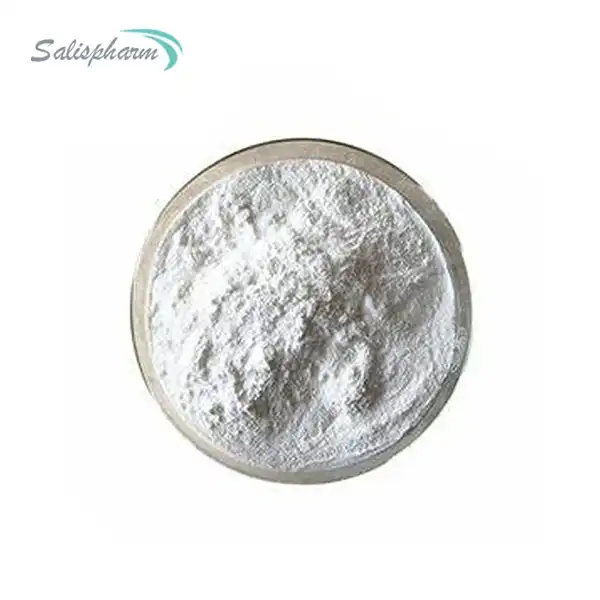Benfotiamine, a synthetic derivative of thiamine (vitamin B1), has gained attention in recent years for its potential health benefits. This fat-soluble form of thiamine is more readily absorbed by the body compared to regular thiamine supplements. Benfotiamine works by increasing the bioavailability of thiamine in the body, which plays a crucial role in various metabolic processes. Its unique structure allows it to cross cell membranes more easily, leading to higher tissue concentrations of thiamine and its biologically active form, thiamine diphosphate (TPP). This enhanced absorption and utilization of thiamine in the body can have significant implications for health, particularly in managing conditions related to thiamine deficiency or metabolic disorders.
What is the recommended dosage of benfotiamine 150 mg?
The recommended dosage of benfotiamine can vary depending on the specific health condition being addressed and individual factors. However, a common dosage that is frequently used and studied is 150 mg. This dosage has shown promising results in various clinical trials and is often considered a standard starting point for supplementation.
For general health maintenance and prevention of thiamine deficiency, a daily dose of 150 mg of benfotiamine is typically sufficient. This dosage can help ensure adequate thiamine levels in the body and support overall metabolic function. It's important to note that benfotiamine is considered safe at this dosage, with no significant side effects reported in most studies.
In some cases, higher doses may be recommended for specific health conditions. For example, in the treatment of diabetic neuropathy, doses ranging from 300 mg to 600 mg per day, divided into two or three doses, have been used in clinical studies. These higher doses have shown potential benefits in reducing nerve pain and improving nerve function in diabetic patients.
For individuals with a history of alcohol abuse or those at risk of Wernicke-Korsakoff syndrome, healthcare providers may recommend higher doses of benfotiamine, sometimes up to 900 mg per day, to quickly replenish thiamine stores and prevent neurological complications.
It's crucial to understand that while 150 mg is a common and often effective dosage, the optimal amount can vary based on individual needs. Factors such as age, overall health status, dietary intake of thiamine, and the presence of specific health conditions can all influence the ideal dosage. Therefore, it's always recommended to consult with a healthcare professional before starting any new supplement regimen.
When taking benfotiamine 150 mg, it's generally advised to take it with meals to enhance absorption. The fat-soluble nature of benfotiamine means that it's better absorbed when taken with food, particularly meals containing some fat. This can help maximize the bioavailability of the supplement and ensure that your body is getting the full benefit of the thiamine.
It's also worth noting that benfotiamine can be taken in conjunction with other B-complex vitamins or as part of a multivitamin supplement. This combination approach can provide a more comprehensive nutritional support, as B vitamins often work synergistically in the body.
While 150 mg is a common single dose, some individuals may benefit from dividing this into two or three smaller doses throughout the day. This approach can help maintain more consistent levels of thiamine in the body. However, due to benfotiamine's improved bioavailability and longer half-life compared to regular thiamine, a single daily dose is often sufficient for many people.
How long does it take for benfotiamine 150 mg to work?
The time it takes for benfotiamine 150 mg to work can vary depending on several factors, including the individual's current thiamine status, overall health, and the specific condition being addressed. However, some general timelines can be observed based on clinical studies and user experiences.
For individuals taking benfotiamine to address a thiamine deficiency, improvements in thiamine levels can be detected relatively quickly. Blood tests may show increased thiamine levels within a few days to a week of starting supplementation. However, it's important to note that while blood levels may rise quickly, the full therapeutic effects may take longer to manifest.
In cases of mild thiamine deficiency or for general health maintenance, some individuals report feeling improvements in energy levels and overall well-being within 2-4 weeks of starting benfotiamine 150 mg daily. This can include reduced fatigue, improved mental clarity, and better mood stability.
For more specific health conditions, the timeline for noticeable effects can be longer:
- Diabetic neuropathy: Studies have shown that improvements in nerve function and reduction in neuropathic pain may begin to be noticeable after 6-12 weeks of consistent supplementation. Some patients report initial improvements in symptoms as early as 3-4 weeks, but significant changes often require several months of treatment.
- Cardiovascular health: The effects of benfotiamine on heart health markers, such as reduced inflammation and improved endothelial function, may take 8-12 weeks to become apparent in clinical measurements.
- Cognitive function: In studies looking at the effects of benfotiamine on cognitive performance, particularly in older adults or those with mild cognitive impairment, improvements have been observed over periods ranging from 3-6 months.
It's crucial to understand that benfotiamine works by gradually improving cellular function and metabolic processes. Unlike medications that may have immediate effects, nutritional supplements like benfotiamine often require consistent use over time to build up in the body and exert their full benefits.
Factors that can influence how quickly benfotiamine works include:
1. Initial thiamine status: Individuals with severe thiamine deficiency may notice more rapid and dramatic improvements compared to those with mild deficiency or normal thiamine levels.
2. Overall health and lifestyle: A healthy diet, regular exercise, and good sleep habits can support the effectiveness of benfotiamine and may lead to faster results.
3. Concurrent health conditions: The presence of other health issues, particularly those affecting nutrient absorption or metabolism, can impact how quickly benfotiamine takes effect.
4. Dosage: While 150 mg is a standard dose, some individuals may require higher doses to achieve therapeutic effects, especially in the treatment of specific conditions.
5. Consistency of use: Regular, daily supplementation is key to experiencing the full benefits of benfotiamine. Inconsistent use may delay or reduce its effectiveness.
It's important to maintain realistic expectations and understand that nutritional interventions often require patience. While some individuals may experience rapid improvements, others may need several weeks or months to notice significant changes. Regular check-ins with a healthcare provider can help monitor progress and adjust the treatment plan if necessary.
Can benfotiamine 150 mg cause side effects?
While benfotiamine 150 mg is generally considered safe for most individuals, like any supplement, it can potentially cause side effects in some people. It's important to note that side effects from benfotiamine are relatively rare, especially when taken at the recommended dosage of 150 mg. However, being aware of potential side effects can help users make informed decisions and monitor their health effectively.
Common Side Effects:
The most commonly reported side effects of benfotiamine are mild and often transient. These may include:
1. Gastrointestinal discomfort: Some individuals may experience mild stomach upset, nausea, or indigestion when first starting benfotiamine supplementation. These symptoms often subside as the body adjusts to the supplement.
2. Headache: A small percentage of users report experiencing headaches, particularly in the initial stages of supplementation.
3. Skin reactions: In rare cases, some people may develop mild skin irritations or rashes. These are typically not severe and often resolve on their own.
4. Changes in urine color: Benfotiamine can cause urine to appear brighter yellow due to the excretion of excess thiamine. This is harmless and simply indicates that the body is processing the supplement.
Less Common Side Effects:
While less frequent, some users have reported:
1. Insomnia or sleep disturbances: In some cases, taking benfotiamine later in the day may affect sleep patterns in sensitive individuals.
2. Anxiety or restlessness: A small number of people report feeling more anxious or restless after taking benfotiamine, particularly at higher doses.
3. Allergic reactions: Although rare, some individuals may be allergic to benfotiamine or other components in the supplement. Signs of an allergic reaction can include itching, swelling, severe rash, or difficulty breathing.
It's important to note that severe side effects from benfotiamine 150 mg are extremely rare. The fat-soluble nature of benfotiamine allows for higher dosages compared to regular thiamine without the risk of toxicity associated with water-soluble forms of vitamin B1.
Factors Influencing Side Effects:
Several factors can influence whether an individual experiences side effects from benfotiamine 150 mg:
1. Individual sensitivity: Some people may be more sensitive to supplements in general and might experience side effects even at lower doses.
2. Pre-existing health conditions: Individuals with certain health conditions, particularly those affecting metabolism or nutrient absorption, may be more prone to side effects.
3. Medication interactions: While benfotiamine has few known drug interactions, it's always important to consult with a healthcare provider if you're taking other medications.
4. Dosage: Although 150 mg is a standard and generally well-tolerated dose, taking higher amounts without medical supervision may increase the risk of side effects.
5. Quality of the supplement: Using high-quality, reputable brands of benfotiamine can reduce the risk of side effects caused by contaminants or inconsistent dosing.
Minimizing Risk of Side Effects:
To minimize the risk of experiencing side effects from benfotiamine 150 mg:
1. Start with a lower dose: If you're concerned about potential side effects, consider starting with a lower dose (e.g., 75 mg) and gradually increasing to 150 mg over time.
2. Take with food: Taking benfotiamine with meals can help reduce the likelihood of gastrointestinal discomfort.
3. Divide the dose: If you experience any issues with a single 150 mg dose, consider splitting it into two 75 mg doses taken at different times of the day.
4. Stay hydrated: Drinking plenty of water can help your body process the supplement more effectively and may reduce the risk of headaches.
5. Monitor your response: Pay attention to how your body responds to the supplement and keep track of any changes in your health or well-being.
6. Consult a healthcare provider: Before starting any new supplement regimen, especially if you have pre-existing health conditions or are taking medications, it's wise to consult with a healthcare professional.
It's crucial to remember that while side effects are possible, they are not experienced by the majority of people taking benfotiamine 150 mg. Most individuals tolerate this supplement well and may experience significant health benefits without any adverse effects. However, if you do experience persistent or severe side effects, it's important to discontinue use and consult with a healthcare provider.
In conclusion, benfotiamine offers a unique approach to enhancing thiamine levels in the body, with potential benefits for various health conditions. Its improved bioavailability and safety profile make it an attractive option for those seeking to optimize their thiamine status. While the standard 150 mg dosage is effective for many, individual needs may vary, and the time to see results can differ based on personal factors and health goals. As with any supplement, it's important to use benfotiamine responsibly, under the guidance of a healthcare professional when necessary, and to be aware of potential side effects, even though they are generally mild and uncommon. By understanding how benfotiamine works in the body, its appropriate dosage, expected timeline for effects, and potential side effects, individuals can make informed decisions about incorporating this supplement into their health regimen.
If you are also interested in this product and want to know more product details, or want to know about other related products, please feel free to contact iceyqiang@aliyun.com.
References:
1. Greb, A., & Bitsch, R. (1998). Comparative bioavailability of various thiamine derivatives after oral administration. International Journal for Vitamin and Nutrition Research, 68(2), 126-130.
2. Stracke, H., Gaus, W., Achenbach, U., Federlin, K., & Bretzel, R. G. (2008). Benfotiamine in diabetic polyneuropathy (BENDIP): results of a randomised, double blind, placebo-controlled clinical study. Experimental and Clinical Endocrinology & Diabetes, 116(10), 600-605.
3. Balakumar, P., Rohilla, A., Krishan, P., Solairaj, P., & Thangathirupathi, A. (2010). The multifaceted therapeutic potential of benfotiamine. Pharmacological Research, 61(6), 482-488.
4. Hammes, H. P., Du, X., Edelstein, D., Taguchi, T., Matsumura, T., Ju, Q., ... & Brownlee, M. (2003). Benfotiamine blocks three major pathways of hyperglycemic damage and prevents experimental diabetic retinopathy. Nature Medicine, 9(3), 294-299.
5. Pan, X., Chen, Z., Fei, G., Pan, S., Bao, W., Ren, S., ... & Jiao, H. (2016). Long-term cognitive improvement after benfotiamine administration in patients with Alzheimer's disease. Neuroscience Bulletin, 32(6), 591-596.
6. Stirban, A., Negrean, M., Stratmann, B., Gawlowski, T., Horstmann, T., Götting, C., ... & Tschoepe, D. (2006). Benfotiamine prevents macro-and microvascular endothelial dysfunction and oxidative stress following a meal rich in advanced glycation end products in individuals with type 2 diabetes. Diabetes Care, 29(9), 2064-2071.
7. Thornalley, P. J. (2005). The potential role of thiamine (vitamin B1) in diabetic complications. Current Diabetes Reviews, 1(3), 287-298.
8. Tapias, V., Jainuddin, S., Ahuja, M., Stack, C., Elipenahli, C., Vignisse, J., ... & Beal, M. F. (2018). Benfotiamine treatment activates the Nrf2/ARE pathway and is neuroprotective in a transgenic mouse model of tauopathy. Human Molecular Genetics, 27(16), 2874-2892.
9. Volvert, M. L., Seyen, S., Piette, M., Evrard, B., Gangolf, M., Plumier, J. C., & Bettendorff, L. (2008). Benfotiamine, a synthetic S-acyl thiamine derivative, has different mechanisms of action and a different pharmacological profile than lipid-soluble thiamine disulfide derivatives. BMC Pharmacology, 8(1), 1-11.
10. Shoeb, M., & Ramana, K. V. (2012). Anti-inflammatory effects of benfotiamine are mediated through the regulation of the arachidonic acid pathway in macrophages. Free Radical Biology and Medicine, 52(1), 182-190.



